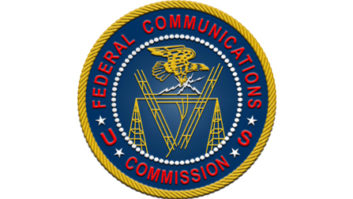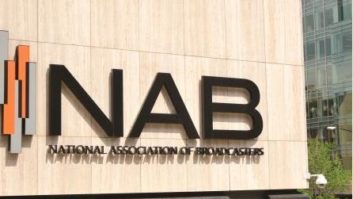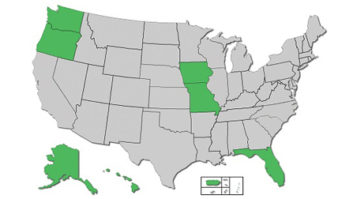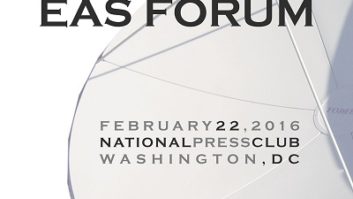Annual National EAS Test Proposed
Mar 1, 2010 12:00 PM, By Harry Martin
The FCC has proposed rules providing for an annual test of the national alert capability of the broadcast Emergency Alert System (EAS). Under the proposed rules, all EAS participants will have to tell the FCC whether they received the test, whether they retransmitted it, and if there was a problem, exactly what that was.
Virtually all full-power radio and television stations are required to have an EAS decoder in place, and most are also required to have an encoder, and to conduct weekly and monthly alert tests. All tests must be recorded in the station’s log. Some stations are less than observant of these obligations, or have faulty equipment, and fines for non-compliance are among those most frequently assessed by the FCC.
The EAS is capable of both national alerts and alerts restricted to specific regions or single states. If a national alert is received, all stations must cease normal programming and either put the alert on the air or, if they cannot, go silent until the emergency is over. Retransmission of local or regional alerts is optional on the part of licensees.
The FCC has never tested the national alert system. The proposed rules are intended to perfect an alert system wherein during a true national emergency the president could get his voice on every radio and TV station in the country. A lot of EAS decoders are automated, and a lot of stations operate unattended all or part of the day. The Commission wants to know if EAS would work nationwide given these and other system characteristics.
Interestingly, in 2007, some FEMA workers accidentally triggered a national-level EAS alert. Since it was not intended to be a test, presumably the alert looked like a real alert. But a combination of equipment failures and speedy intervention by EAS participants made the alert into a non-event.
In pursuit of its planned nationwide system, the Commission issued a notice of proposed rule making in January. The notice proposes that a national test be conducted once a year. Stations would be given at least two months’ advance warning that the test is coming but would not be told the exact time and date. Every EAS participant would be expected to air the test, log it, and then provide the test results to the FCC within 30 days. If the test is not received or retransmitted, a station would have to fix its EAS equipment and report what went wrong to the FCC. Presumably the national test will contain information making it clear to listeners and viewers that it is only a test.
With national testing in the offing, licensees should check their EAS systems now to make sure their equipment is operating properly will be capable of receiving the tests. Unlike the current system, where compliance tests take the form of occasional FCC inspections, every station will be held accountable under the national testing procedure. One thing to check is whether the encoder/decoder requires a Federal Information Processing Standards (FIPS) location code to respond to a message. That code identifies the geographic area to which an alert applies. A nationwide message might not have one, and some decoders are known to ignore messages with no FIPS Code.
Digital radio and TV stations should make sure that the alert can be retransmitted on each of their audio or video streams.
Dateline
For noncommercial radio stations in Delaware, Indiana, Kentucky, Pennsylvania and Tennessee their biennial ownership report deadline is April 1. The deadline for submission of biennial ownership reports for commercial radio stations has been suspended pending a further redesign of Form 323.
April 1 is the deadline for radio stations in Delaware and Pennsylvania to electronically file their Broadcast EEO Mid-Term Reports (Form 397) with the FCC.
April 1 is the deadline for radio stations licensed in the following states to place their annual EEO Reports in their public files: Delaware, Indiana, Kentucky, Pennsylvania, Tennessee and Texas.
Martin is a member of Fletcher, Heald & Hildreth, PLC, Arlington, VA. E-mail:[email protected].







